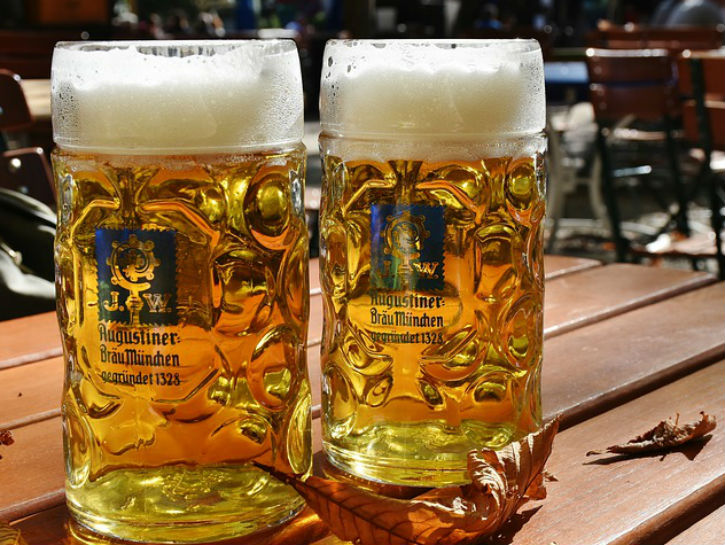Beer is one of our favorite alcoholic beverages. It is such a big part of many cultures and traditions, that it’s impossible to think of living in a world without it. But according to new research, there could be trouble brewing for the world’s beer drinkers.
Earlier this year, an international research team warned that we could see a drop in beer supply and a rise in prices because of climate change. A new study published in Nature Plants says that there is a predicted shortage of barley because of rising global temperatures, and this could severely affect the beer supply.
“Future drought and heat events will not only lower the total availability of barley for most key countries but will also reduce the share of barley used for beer production,” reads the report.

The research also predicts that in extreme heatwaves and droughts, global beer consumption would fall by 16 percent and beer prices would double. But, even in less severe climate conditions, we could still see a drop in consumption by around four percent and see the price of beer climb as much as fifteen percent.
The researchers used climate models to look at the impact of extreme weather on barley yields over the next eight decades. They also used economic models to estimate the impact of barley yields on the beer supply and prices around the globe.
What’s The Damage?

Most of the barley harvest is fed to livestock. So, the animals take priority if it is in short supply, and that causes a large decrease in barley for brewing beer.
“Future climate and pricing conditions could put beer out of reach for hundreds of millions of people around the world,” said researcher Professor Steven Davis from the University of California, Irvine.
It is important to note that there are assumptions and uncertainties in the study. So, the supply shortages and price increases are not perfect predictions. Instead, they are an illustration of the impact of climate change. Ultimately, the research shows that in general, global warming will cause beer to be less available and more expensive.
And, barley will not be the only crop affected by climate change. Things like chocolate, coffee, and tea will all suffer with short supplies and higher prices.
Cultural Impact

According to the analysis, some of the worst hit areas could be Belgium, the Czech Republic, and Ireland, which are three of the key brewing nations on Earth. If we don’t curb carbon emissions, beer consumption could fall by about one-third in those countries. In the UK it will mean a 25 percent drop, and beer consumption in America will go down 14 percent.
In China, the world’s biggest consumer of beer, the forecast is a nine percent drop, and in Australia, climate change could mean a seven percent drop. The lower percentage drop in Australia is because it is one of the few places where climate change could make growing barley easier.
As for beer prices, the researchers say that the worst hit would be Poland if the climate change forecasts are correct. The price would increase in that country by almost five hundred percent. And, in Ireland, Belgium, and the Czech Republic, they would see beer prices double. The reason these countries are the most affected is because they brew and drink a lot of beer, but import the majority of their barley.

Even though a beer shortage might not seem as important as possible food storages and storms due to climate change, it will still affect many people’s quality of life. One of the research team members, Professor Dabo Guan at the University of East Anglia, says that there is a cross-culture appreciation of beer, and there is something fundamental about that shared culture.
He added that the only way to keep enjoying a couple of beers while watching sports is to take action when it comes to climate change because that is the only way to keep barley available for beer.
As the Earth’s surface temperature rises, extreme climate events will become more common, and also more severe. So, if humans really are causing climate change, we need to make some big changes if we want to continue to enjoy a cold beer.
Guan also suggests that shortages and spikes in beer prices could be a problem for social stability because it could lead to organized crime supplying illicit liquor, just like during prohibition.
The Takeaway

So, what does all of this mean? This research shines a spotlight on the realistic impact of rising temperatures across the globe. It moves it from an abstract concept to something real. And, the research could possibly be underestimating the consequences.
Temperatures have risen moderately in the UK, and that has already caused significant drops in barley yields, so the effect could be worse than predicted. And, the taste of beer could change because global warming will impact hop production, too.
Currently, the United States is not part of the Paris agreement for climate change. That agreement may not be the perfect solution to changing temperatures, but if we don’t do something, you might be surprised by the impact.
